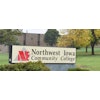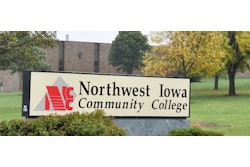In early December, my travels took me to Gateway Technical
Community College in New Haven, Connecticut. I’d expected it
to be a campus trip like any other campus trip, where a speaker
comes in, hangs out a bit, gives a talk, entertains questions, packs
up her glad rags and goes home. This doesn’t mean that the
lecture circuit is rote.
Every location brings interesting people
with memorable personalities. Some trips bring reunions with old
friends, and others bring contacts that sometimes develop into
rich friendships. There was much of that in my Gateway trip,
but there was something more, as well.
One of the deans at Gateway Technical Community College
shared her powerful personal story with me and reminded me
that, in these days of “welfare deform,” postsecondary education
ought to play a much greater role than it currently does.
Dr. Susan Lincoln married early and had four small children
and a broken marriage by the time she was twenty years old. The
child of Maryland migrant farmers, she also had tenacity and a
determination not to be defined by her circumstances. So she
collected public assistance from a system she found “harsh and
humiliating.” But she also finished high school, then college, and
then earned a Ph.D. (Her neighbors watched her children during
the day in exchange for her watching their children at night.) Now
she is Dean of Student Services at Gateway Technical
Community College, an institution she has served for more than
twenty-five years.
In her late fifties, Dr. Lincoln has the energy and attitude of
someone a decade younger. But she has the warmth and
compassion of a woman who has raised children, who enjoys two
grandchildren, and who has seen quite a bit in her time. To talk
with Dr. Lincoln is to envy the nurturing wisdom that she so
clearly shares with her students, a group of folks she speaks of
both fondly and sternly. She is dismayed that more African
American and women students aren’t immersing themselves in
technology, disturbed that more women on public assistance
don’t investigate the community college option as a ladder out of
poverty.
“Believe me,” she told me in a crisp voice reminiscent of
Eartha Kitt’s storytelling voice. “If I could make it, so can
they. They just need to understand that education
is an option.”
Women on public assistance aren’t the only ones who need to
understand.
Policymakers bent on punitive versions of welfare
reform need to be clear that low-wage jobs are a
revolving door For poor women and no way to
encourage self-sufficiency. Pathways to education and
decent paying jobs are permanent pathways
out of poverty Researchers at the Washington, D.C.- based
Center for Women Policy Studies have been making this point for
years. But the point is made more clearly, more compellingly,
when someone like Dr. Susan Lincoln tells her story.














